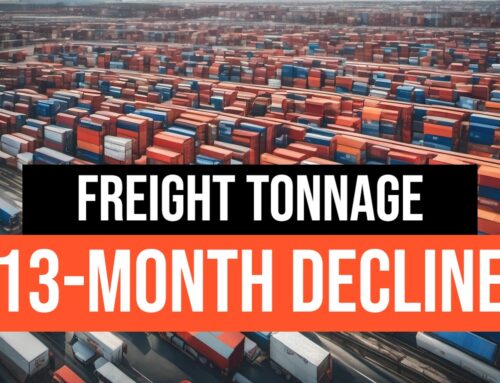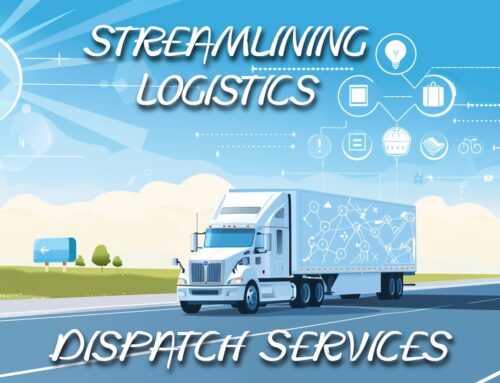Table of Contents
As the freight industry navigates the post-pandemic landscape, experts are predicting a potential freight recession in 2024. This economic downturn could have significant implications for small trucking companies and owner-operators, who are already facing a number of challenges.
Economic slowdown
The global economy is expected to slow down in 2023 and 2024 due to a number of factors, including the ongoing COVID-19 pandemic, the war in Ukraine, and rising inflation. This slowdown is likely to reduce demand for goods and services, which will have a ripple effect on the freight industry.
As demand for goods and services decreases, companies will need to ship fewer products, which will lead to a decrease in freight volumes. This will make it more difficult for carriers to find profitable loads and could lead to lower rates.
In addition, the economic slowdown is likely to lead to an increase in bankruptcies and business closures. This will further reduce demand for freight services, as these companies will no longer be shipping products.
The combination of these factors is likely to create a challenging environment for trucking companies and owner-operators in 2024. Carriers will need to be prepared for lower rates, reduced demand, and increased competition.
Excess capacity
The trucking industry is currently experiencing an oversupply of capacity due to a number of factors, including the influx of new trucks during the pandemic and the decline in e-commerce growth.
During the pandemic, many companies purchased new trucks to meet the surge in demand for freight services. However, as the economy has begun to slow down, demand for freight has declined. This has led to an oversupply of trucks on the road, which is driving down rates and making it more difficult for carriers to find profitable loads.
In addition, the decline in e-commerce growth has also contributed to the oversupply of capacity. E-commerce was a major driver of freight demand during the pandemic, as consumers increasingly purchased goods online. However, as the economy has reopened, consumers have begun to return to in-store shopping. This has led to a decrease in the number of e-commerce shipments, which has further reduced demand for freight services.
The oversupply of capacity is likely to continue in the near term, as it will take some time for the trucking industry to adjust to the new economic environment. This is likely to put pressure on trucking companies and owner-operators, as they will need to find ways to compete on price and remain profitable.
Rising costs
The rising costs of fuel, insurance, and maintenance are putting pressure on trucking companies’ profit margins. This is making it more difficult for carriers to compete on price and remain profitable.
- Fuel is one of the largest expenses for trucking companies. The cost of diesel fuel has been rising steadily in recent years, and it is expected to continue to rise in the future. This is due to a number of factors, including the increasing demand for oil from emerging economies, the decline in global oil production, and the geopolitical situation in the Middle East.
- Insurance costs are also rising for trucking companies. This is due to a number of factors, including the increasing number of accidents involving trucks, the rising cost of medical care, and the increasing number of lawsuits against trucking companies.
- Maintenance costs are also increasing for trucking companies. This is due to a number of factors, including the increasing complexity of trucks, the rising cost of parts, and the increasing number of regulations that require trucks to be maintained in good condition.
The combination of these rising costs is making it more difficult for trucking companies to compete on price and remain profitable. Carriers are being forced to raise their rates to cover their costs, but this is making it more difficult for them to find customers.
Regulatory changes
Increasing regulations, such as the ELD mandate and the California Assembly Bill 5 (AB5), are adding to the administrative burden and compliance costs for carriers. This is making it more difficult for small trucking companies and owner-operators to compete.
AB5 has made it more difficult for trucking companies to find independent contractors, as many drivers are now unwilling to work as employees. This has led to a shortage of drivers and has driven up the cost of freight transportation.
This is making it increasingly difficult for small trucking companies and owner-operators to compete. Overall, the combination of all of these factors suggests that there is a significant risk of a freight recession in 2024. Trucking companies and owner-operators should be prepared for this possibility and take steps to mitigate the impact on their businesses.
Interesting Stats
These statistics are based on surveys of small trucking companies and owner-operators conducted by the American Trucking Associations and the Owner-Operator Independent Drivers Association, respectively. The surveys were conducted in January 2023 and included responses from hundreds of trucking companies and owner-operators across the United States.
- 58% of small trucking companies are concerned about the impact of a freight recession in 2024: American Trucking Associations, “Trucking Conditions Index” (January 2023)
- 62% of owner-operators say they are already feeling the effects of the downturn, with 45% reporting a decrease in revenue: Owner-Operator Independent Drivers Association, “2023 OOIDA Business Outlook Survey (PDF)”
The Trucking Conditions Index (TCI) is a monthly survey of motor carriers that provides an overview of the current state of the trucking industry. The TCI is based on a survey of trucking companies of all sizes, including small trucking companies.
The OOIDA Business Outlook Survey is an annual survey of owner-operators that provides insights into the challenges and opportunities facing owner-operators in the current economic environment.
AFT Dispatch: Your Partner in Success
At AFT Dispatch, we’re committed to helping small trucking companies and owner-operators succeed, even in challenging economic times. Our experienced team of truck dispatchers can help you:
- Find the most profitable loads
- Negotiate the best rates
- Reduce your operating costs
- Stay compliant with regulations
With AFT Dispatch, you can focus on what you do best – driving your truck and growing your business. Let us take care of the rest.
Join the AFT Dispatch family today and start making more money with our established truck dispatch service.
Call or text us at (801) 448-6363, or check out our vast library of free educational trucking videos.
Are you ready to take your trucking business to the next level?






Leave A Comment